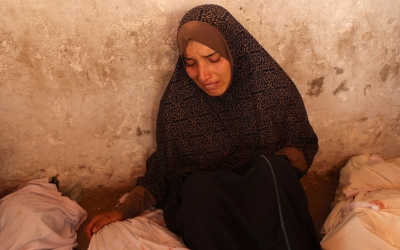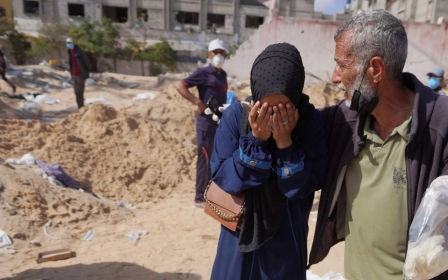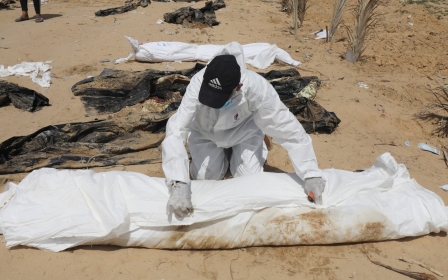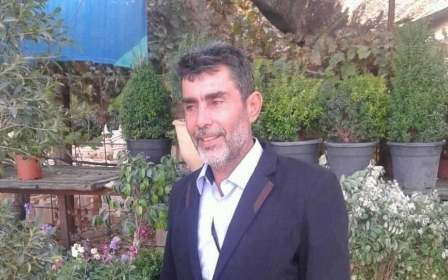Palestinians demand answers after Israel sends truck full of decomposed bodies to Gaza
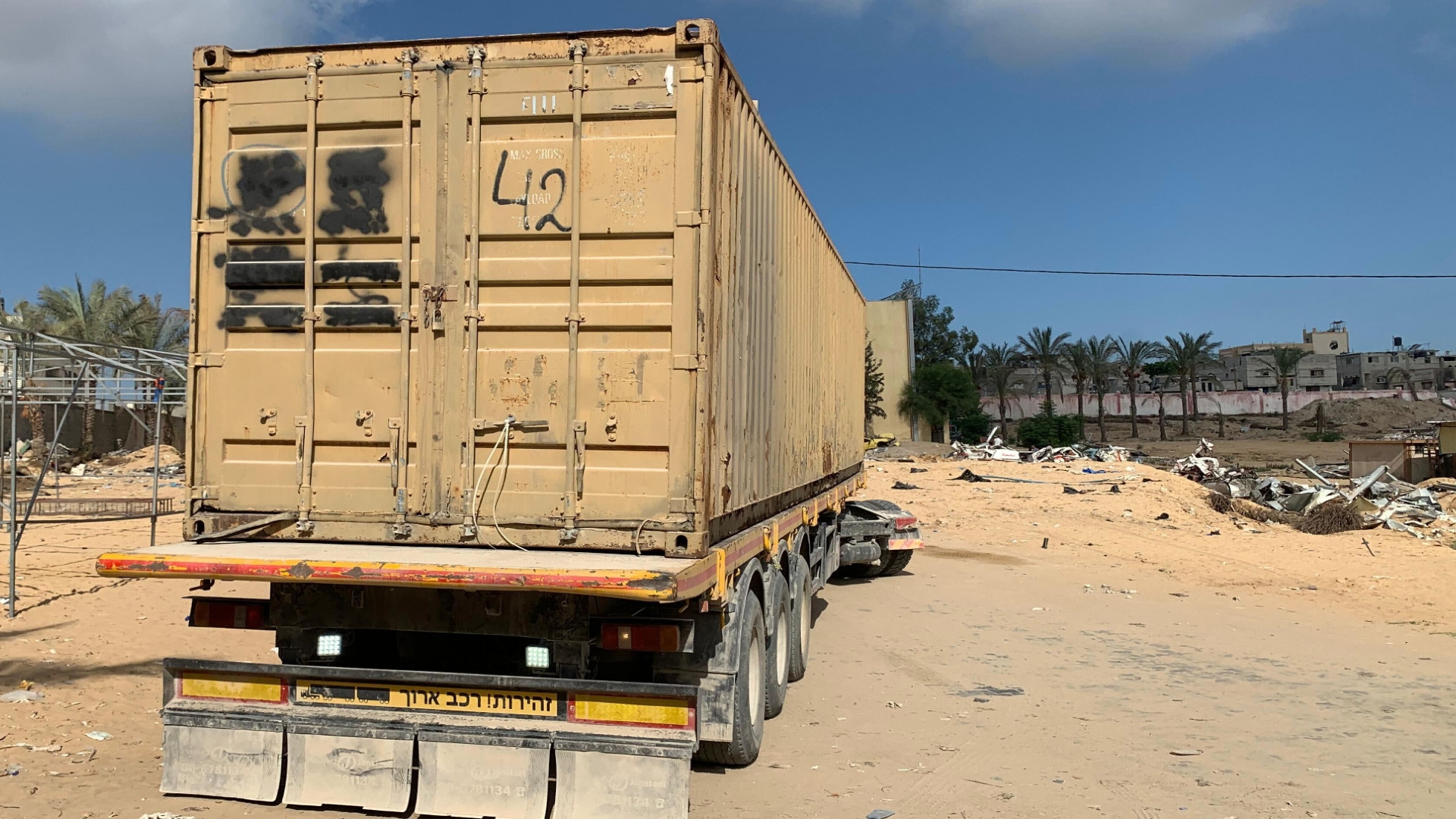
Israel sent a truck filled with the decomposed bodies of nearly 90 Palestinians to Gaza on Wednesday, which the territory’s health ministry refused to bury, citing Israel's failure to discloses details about who they are and where they were killed.
The Palestinian Ministry of Health, which has worked tirelessly to treat wounded Palestinians and get humanitarian assistance into the enclave, said in a statement that it was refusing to accept the latest arrivals after the Israeli military sent them without providing "their names, ages, genders, or the areas in which they were killed and kidnapped".
Iyad Qadeeh, a media official at the Ministry of Health, said that Wednesday's arrival was the fifth time that authorities had received a truck load of unidentified corpses.
He told Middle East Eye that from now on health officials would refuse to accept any more bodies without identifying information.
A source at the Nasser Hospital told MEE that the truck driver, who had arrived from Karem Abu Salem checkpoint, was barred from entering the hospital and instructed to "go back to where he came from".
New MEE newsletter: Jerusalem Dispatch
Sign up to get the latest insights and analysis on Israel-Palestine, alongside Turkey Unpacked and other MEE newsletters
Shortly after leaving the facility, and in an attempt to return to the Karem Abu Salem crossing, the drive was shot at by Israeli forces and was forced to return to the hospital, sources said.
Umm Tamer, an elderly Palestinian woman whose two sons were killed by Israel, told MEE that she was still searching for the remains of her loved ones, months after their bodies were taken by Israeli forces.
"The bodies are just bone. How can I identify my son?", she said, after the truck returned to the facility.
"The Israelis brought back the bodies only as bones."
Since the 7 October attacks, Israeli forces have returned hundreds of bodies to Gaza in a defiled state, many decomposed and unidentifiable.
Israeli forces have repeatedly dug up graves across the enclave to search for the remains of captives taken by Hamas. During the 7 October attack, 1,139 people - mostly civilians - were killed, while more than 250 others were taken as hostages Gaza. Around 100 Israeli captives remain in the enclave.
On 2 August a truck carrying around 90 bodies arrived in Gaza from Israel. The ministry said the remains were returned as “bones and decomposed bodies in an inhumane manner”.
The bodies were reportedly so decomposed that the remains of five people were placed in one coffin, and only two families were able to identify the bodies of their children.
Under international humanitarian law, those who have died during an armed conflict must be handled with dignity and be properly managed.
The law requires that they be searched for, collected and evacuated, which helps to ensure that people do not go missing.
Sonia Aburjeila was among a group of people who had amassed near the Nasser Hospital in Khan Younis after Israel returned scores of unnamed and badly decomposed bodies to the war-battered facility.
"Whenever we hear about batches of bodies being delivered, we come to inspect them," Aburjeila told MEE, adding that she was at the hospital to search for her son and father who went missing during the course of the war.
"Perhaps we will find them," she added.
Salwa Kurraz, whose son, Marwan Bakr Kurraz, went missing on his way from Deir al-Balah to Gaza City, told MEE that every time Israel returns bodies to the enclave, she would also go through the painful process of trying to find him among the remains.
'We find nothing'
"We ask about him and try to find anything about him, but to no avail. We find nothing," she said.
"His father always inspects the bodies that arrive unidentified. He was wearing brown pants, an indigo blue shirt, beige shoes and a black jacket, and he had his bicycle."
The war, now approaching its one-year mark, has turned much of the enclave into an uninhabitable hellscape.
Whole neighbourhoods have been erased. Homes, schools and hospitals have been devastated by air strikes and scorched by tank fire.
Almost the entire population are reported to have fled their homes, and those remaining in northern Gaza are on the verge of famine.
Middle East Eye delivers independent and unrivalled coverage and analysis of the Middle East, North Africa and beyond. To learn more about republishing this content and the associated fees, please fill out this form. More about MEE can be found here.


